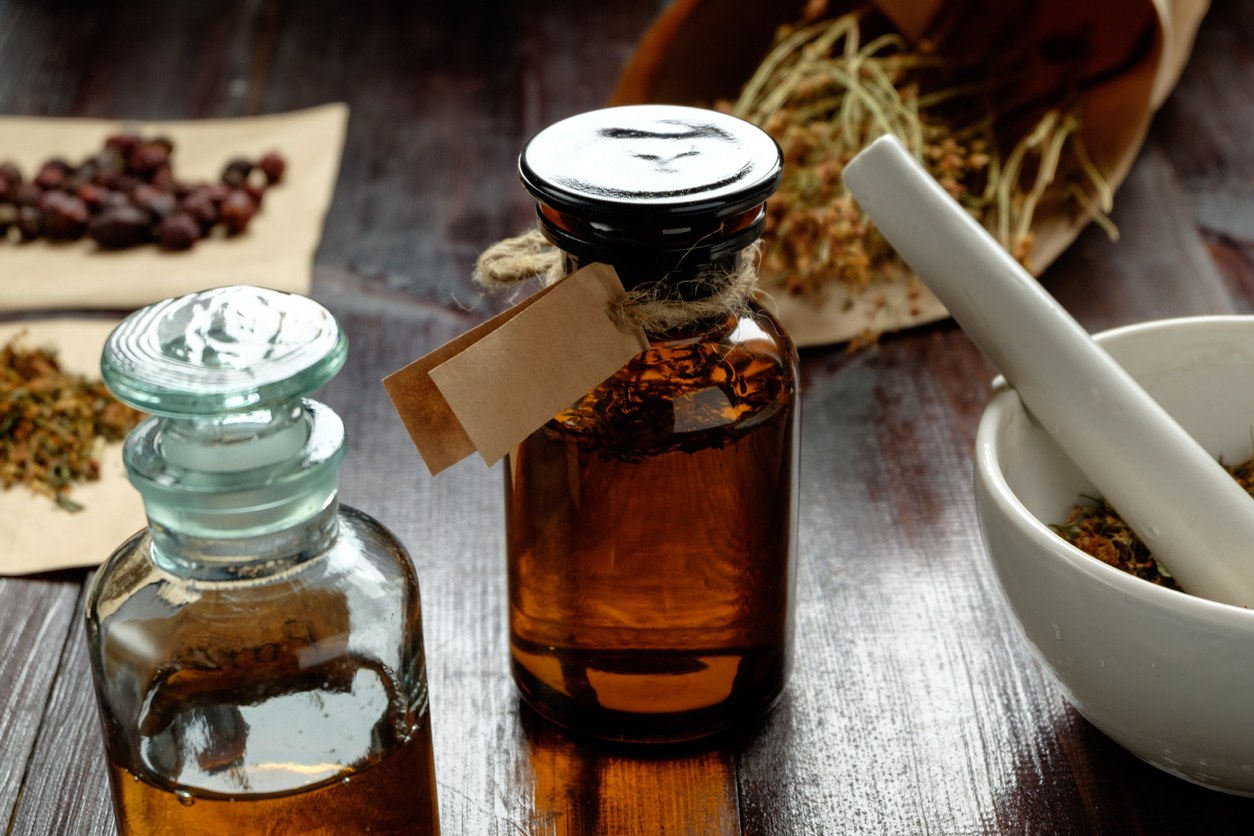Functional beverages. While the name might sound intimidating and scientific, these drinks are quickly becoming an extremely approachable way to maintain individual health. In the past, drink companies tended towards sugary sodas and flavored juice drinks to gain customers, but people these days don’t want to be loaded with sugar every time they’re thirsty; instead, more and more people are turning to functional beverages as a way to stay hydrated as well as healthy. As people have learned more about health and particularly about the effect of diet on health, functional beverages that have existed in the background for thousands of years are finally beginning to take their rightful place in the spotlight.
There are a whole host of benefits that can be reaped from functional beverages, and these benefits change depending on what you’re taking. Some drinks, mainly those intended for athletes, are simply loaded with electrolytes and vitamins to help replace nutrients lost during exercise; other are fermented and, along with complex flavor profiles, boast a host of probiotics, electrolytes, and other important nutrients. Some are veggie-based, others are dairy-based, and others are in their own category entirely! Recently, the market of functional beverages has exploded in the US and elsewhere; brands that could only be found in the most select of health food stores can now be found almost anywhere that sells food, and the range of products available is increasing every year. With all that abundance, it can be more than a little overwhelming to try and break into the functional beverage game – how do you choose a beverage that suits your needs? Can you give it to your kids? And of course, is it budget-friendly? Never fear, the good folks at Oliver’s have got all the information you need to become a functional beverage expert on the fly!
Herbal Tonics
(Check out: Sunwink Sparkling Herbal Tonics, $3.69+CRV)
Western medicine these days tends to be all about taking a handful of whatever the doctor prescribes, but it wasn’t so long ago that people all over the world relied exclusively on herbs to relieve whatever ailed them. While we’re not knocking the advances of modern medicine, traditional herbal derivatives are still a great way of maintaining and boosting overall health and wellness. Every day, our bodies are forced to respond and adapt to the stimulus we encounter in life. This can be anything from standard day-to-day stressors to the extreme stress of a tragic event. Work, in particular, is a major source of chronic stress with one study claiming that at least 77% of American experience work-related chronic stress annually. This constant pressure combines with a lack of any sort of support, and we eventually begin to develop or exacerbate health problems, and the longer this continues unchecked, the more run-down we become. Herbal tonics, while not a cure-all, can help to boost immune system and organ function, which in turn helps our bodies to handle stress better and adapt to our environments more easily – the goal of an herbal tonic is to balance and support the body’s natural functions, providing a strong foundation for long-term health.
Now, depending on which culture you check with and depending on the time period you check in, the reasoning behind this thinking changes. In Chinese medicinal traditions, herbal tonics and their usefulness has everything to do with the movement of energy through the body. This energy, known as qi, must be a balanced mix of several different kinds of energy; if one of these becomes unbalanced, then the entire system goes off and the person experiences adverse effects. Herbal tonics are thus tailored to aligning the element that is out of balance by using herbs of a particular energy and with a particular association in the body. In early Western medicine, health was thought to be the result of tensions within the body, and herbal tonics were prescribed to either alleviate or increase tension. As our understanding of the human body increased over time, so too did the precision with which we were able to tailor treatments, and though prescription medicines began to move into the forefront, herbal medicine remained the treatment of choice for the working class until the early 20th century. Nowadays, Western herbalism has turned towards science to validate what has been known colloquially for thousands of years; we have learned more about the active properties of herbs and the effects they have, as well as how to harness those herbs to effectively promote physical well-being. While herbal tonics today are less for treating and more for preventing, they are still an easy and delicious way to help maintain peak health!
Kombucha
(Check out: GT’s Organic Kombucha, $2.49+CRV)
It’s the hottest trend in beverages, but kombucha is actually thousands of years old! Like many traditional, fermented goodies, no one is quite sure who actually first decided that kombucha was worth consuming, but we do know that it can be traced back to about 200 BCE in Northeastern China. There are also hundreds of legends regarding who actually developed kombucha as well as where the name itself comes from, but the most popular myth centers around a Korean doctor named Kombu; according to legend, Dr. Kombu was contracted to heal the emperor of Japan using a magic elixir, which was so effective that the emperor had the drink named for the doctor who had healed him. While there are several issues with this version of events, scrolls chronicling Japanese history have been found which describe a doctor named “Komu-ha” or “Kon Mu”, so the story may have some basis in fact after all! Eventually, kombucha spread to Russia and other parts of Europe, where it enjoyed major popularity until WWII when food rationing made home kombucha-preparation impossible. Currently, kombucha is in the middle of major resurgence in popularity, but the reasons to drink it have remained unchanged.
So, what is kombucha actually? At its core, kombucha is a fermented beverage made from mixing specific strains of yeasts, green or black tea, and sugar; the resulting growth of yeasts and bacteria form a mushroom-like film, which can actually be used to create new batches of kombucha from scratch. These bacteria produce acetic acid (vinegar) and small quantities of alcohol, as well as gasses such as carbon dioxide. These gasses give kombucha a natural effervescence, similar to kimchi or beer. The high numbers of probiotics found in un-pasteurized kombucha are thought to be highly beneficial to gut health and even to the prevention and management of certain chronic diseases. Additionally, kombucha carries with it the any benefits of the tea from which it was made – for instance, both green and black tea are loaded with important antioxidants such as flavanols and polyphenols, and they’re even a natural source of fluoride! There is even some evidence to suggest that kombucha might even be an effective prevention method for radiation poisoning, though this has never been corroborated scientifically. Following the disastrous nuclear meltdown in Chernobyl, the Russian government noticed that the only group who were seemingly unaffected were individuals who had consumed tea kvass (the Russian name for kombucha) regularly their entire lives. While we wouldn’t recommend chugging kombucha at the next hint of a nuclear threat, adding it to your diet certainly couldn’t hurt!
CBD Infused Drinks
(Check out: Daytrip Hemp Infused Sparkling Water, $2.99+CRV)
As our understanding of the effects and uses of hemp and cannabis have expanded, so has our desire to infuse them into absolutely everything we possibly can. CBD chocolates? Sure, why not. CBD oils and balms? Great, superb. But come on – WATER?!
Before you go dismissing hemp water outright (or trying to get stoned off it), hear us out; there are some very good reasons to give CBD infused drinks a chance. To understand their benefit, you first need to look at the benefits of CBD itself. Cannabidiol (CBD) is one of many chemical compounds found in the cannabis plant (also known as hemp), and unlike the more well-known tetrahydrocannabinol (THC), it is not psychoactive. CBD is used to treat a variety of different ailments, from common problems such as arthritis and chronic pain to the extreme, like severe epilepsy in children; though the true scope of its potential is only now being explored, CBD is already showing promise as a non-addictive and low-side effect treatment option for certain conditions. Cannabis as medicine is not a particularly new concept; though cannabis is now grown worldwide, it is believed to have originated in Asia sometime around 500 BCE. Through human expansion and its own fast-growing nature, it eventually spread throughout the world where it continued to be cultivated primarily for use in textiles, paper production, and even food. In the 1800’s, cannabis extracts were found to be an effective treatment for stomach problems like nausea and vomiting, and they quickly became a staple in pharmacies. In fact, it wasn’t until the Great Depression that cannabis became known primarily for its recreational use, but that’s an entirely different kettle of wax. The point is that, by the 1930’s, attitudes towards cannabis had changed and it was subsequently outlawed. Cannabis wouldn’t be accepted as a viable medical treatment until 1996, when California became the first state to legalize medical marijuana use for approved patients.
While THC and the cannabis plants that contain it are still heavily controlled in many states, CBD is legal in all 50 in some form or another. As the interest in cannabis and cannabis products has increased, so too have the range of products available. Recently, many beverage companies have begun expanding their lines to include CBD infused sparkling waters. These drinks are an approachable way for non-cannabis users and first-time CBD users to incorporate CBD supplements into their lives. Whether you’re looking for a quick pick-me-up that won’t leave you loopy or are looking to bolster an existing CBD regimen, CBD infused waters are an easy way to add more CBD into your daily routine. That being said, they can run a little pricey, so make sure you get your money’s worth – look for dark, light-resistant packaging, and try to find brands with dosages over 5mg per serving, ideally higher. CBD degrades easily in light, and you at least 15mg daily to reap its benefits, so keep those puppies in the dark!
Functional beverages are an amazingly easy way to supplement a healthy lifestyle – whether you’re looking to improve your gut health, boost your immune system, or even just hydrate like a pro, functional beverages here to help you out. This week, stop into Oliver’s and put the “fun” in “functional” with amazing prices on your favorite functional beverages!


No comments yet. Add the first comment